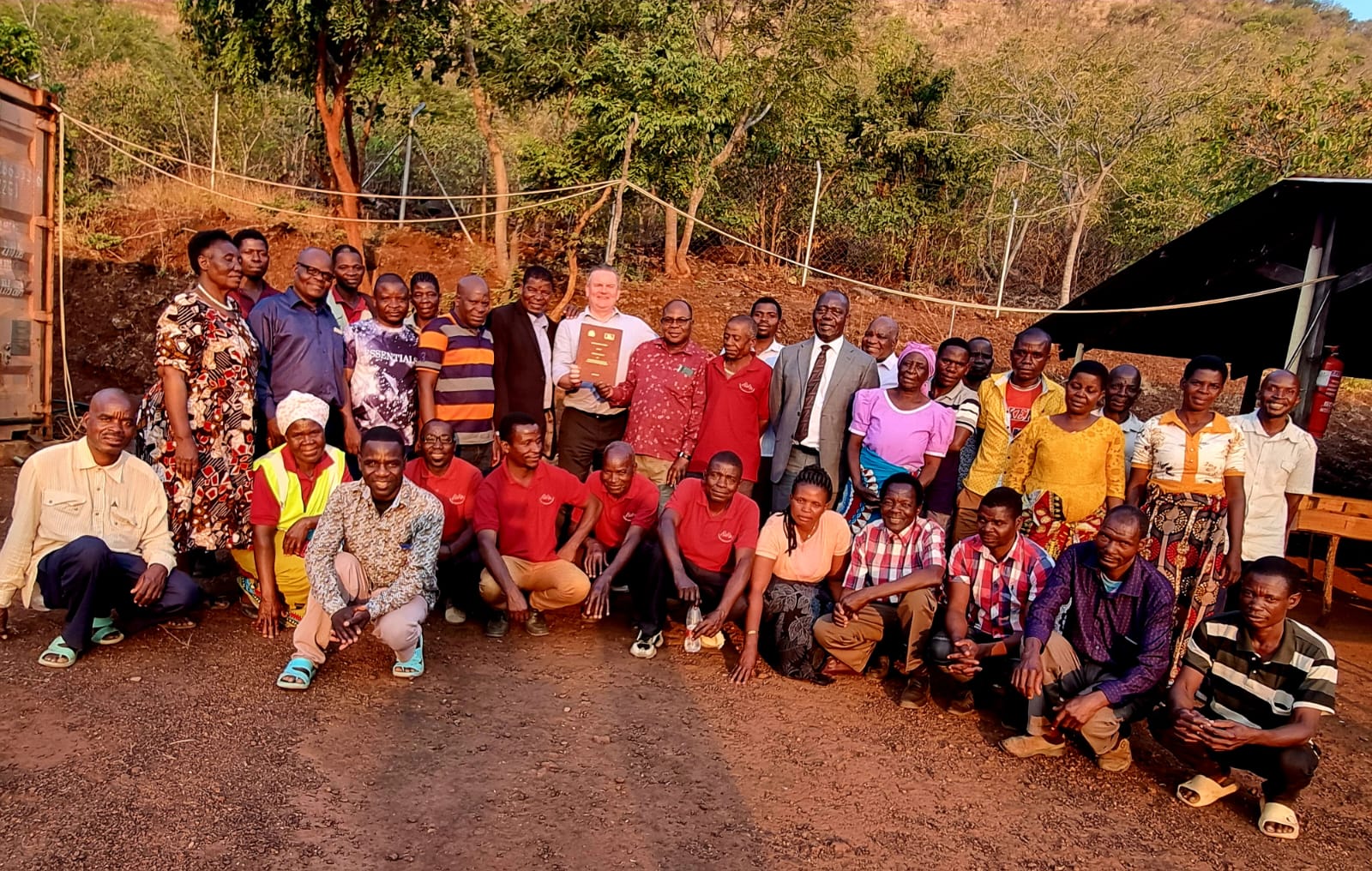
Mining
CSOs urge Malawi Government to put mining agreements for Kayelekera, Songwe Hill in public domain
October 03, 2024 / Wahard Betha

Mkango met members of the local community to announce the signing of the agreement
By Wahard Betha
Over two months have elapsed since the Malawi Government signed Mining Development Agreements (MDAs) with Lancaster Exploration (a subsidiary of UK firm Mkango Resources) for the Songwe Hill Rare Earths Mining Project in Phalombe and ASX-listed Lotus Resources for the Kayelekera Uranium Mining Project in Karonga but the Government is yet to make the agreements public.
The two publicly listed companies only published some contents of their agreements with Lancaster listing the key components of its MDA as 5% royalty of gross revenue; 30% corporate tax rate;10% non-diluting equity Interest in the Project to Malawi Government; Exemption from customs and excise duties – Lancaster will be exempted from Export Duty, Import Duty, Import Excise and Import Value Added Tax (VAT) on imports and exports of capital goods as provided in the applicable law; 10 years stability period; 10 years Tax loss carry forward; and Community Development Expenditure as an allowable tax deduction.
On the other hand, Lotus announced in a Press Statement soon after the signing ceremony of the two MDAs that was convened in Lilongwe by the Presidential Delivery Unit that the key features of its MDA for Kayelekera Uranium Mine include:
• A stability period of 10 years from date of execution during which the Project will not be subject to any detrimental changes to the fiscal regime
• Royalty rate of 5% and the corporate tax rate of 30%
• Tax losses from acquisition are included, with protection from disputes on tax refunds through the principle of tax set-off. The agreement also includes ability to restructure historical loans and tax losses on a tax neutral basis
• Malawi’s currently legislated Resources Rent Tax (RRT), which is not fit for purpose, does not apply. Instead, the Government of Malawi proposes to consider an alternate supernormal profits tax (that may consist of a sliding scale linked to uranium price) to replace the current RRT. The Company will receive a waiver until such time as this is effective.
• Exemptions for import and export duties, excise and Value Added Tax (VAT) on capital goods and on specified consumable items directly related to mine production
• Withholding Tax relief (currently 10% for a mining company) on dividends to Lotus for the majority of the mine life
• The maintenance of foreign currency bank accounts inside and outside Malawi that are supportive of project financier requirements
• A Community Development Agreement with a minimum value of 0.45% of project revenue set aside for community projects
• Specific legal protection is afforded to the Company, including security of tenure, dispute resolution and arbitration and non-discrimination.
But National Coordinator for Natural Resources Justice Network (NRJN), an umbrella grouping of civil society organizations working in the extractives sector in Malawi, said in an interview there is need for government to make public the entire MDAs including taking its contents to local communities affected by the projects.
He said it is incumbent upon the Malawi Government to implement the commitment of open contracting or disclosure of contracts under the Extractives Industry Transparency Initiative (EITI) of which Malawi is a member.
“From January 2021, the EITI standard set a requirement that every country fully disclose any contracts and licenses that are granted, entered into or amended,” he said.
Rashid explained that open contracting or disclosure of contracts is a vital tool in the resource governance that accountability institutions can use to hold the government accountable.
He said the tendency of hiding such agreements involving exploitation of natural resources propagates public suspicion of what is the contained in the agreements.
Rashid said: “As a country we have to implement the commitment of open contracting/ disclosure of contracts under EITI.”
“Ever since we started mining in Malawi, only very few MDAs have been made public out of all the medium and large-scale mining activities in the country.”
“There is also a very serious corruption risk as though MDAs are signed there seems to be no accountability mechanisms in place for oversight on the executive arm of government and mining companies.”
“For the accountability institutions to hold government to account there is a need for the contracts to be made public.”
He said it is unfortunate that the Government is embracing EITI standards but failing to implement the commitment on the ground.
Rashid said: “The non-disclosure usually erodes public trust in the process as per historical experience that the public have had in the past over other undisclosed MDAs.”
“It is strange that the Government seems to be trying hard to embrace openness and accountability but challenging the efforts of an open and accountable mining sector.”
“One would expect government agencies to embrace the policies that government is proclaiming by proactively disclosing information but we are still kept in the dark leaving the public with suspicions and expectations.”
But Coordinator for Chamber of Mines and Energy Grain Malunga asked for patience from the general public as they are few processes that needs to be done before making the MDAs public.
“The MDAs will be made public. There is no secrecy about them. They have to be scanned and shared. It is long process,” he said.































